Description
Robert Thurman – Revolutionary Enlightenment
Marrying a Playful Spirit With Constructive Action
If you’ve noticed over time that your practice has gotten a bit dry, Robert can help you inject a more expansive quality of delight into your practice and your days.
As you do this, meditation becomes more enjoyable. Compassion becomes more mischievous. Consciousness becomes more unpredictable.
And you’ll reconnect with the unique qualities of life that want to move through you and express through you in authentic, natural ways.
Vimalkirti knew this well, which is why his Sutras are a clarion call for rebels, misfits, and adventurous Buddhists around the world.
In this unprecedented 8-week program, you’ll see how to marry an expansive spirit with tangible, concrete actions that better the world. Indeed, the call of our time is to get off our cushions and help the world become a more compassionate and enlightened place. Addressing real human suffering is also a key aspect of our personal practice.
Robert will show you how to go beyond the feeling of being weighed down by the troubles of the world, and instead learn to dance with them in a way that celebrates the beauty of life.
If you’re hungry to open up into qualities of limitless freedom and joy and go beyond self-serious spiritual discipline, this is the program for you.
During this 8-week program, you’ll:
Discover why it’s important to take the Buddhism out of Buddhism in order to become truly free Discover how to adapt your livelihood to harmonize as much as possible to the tenfold positive actions and avoid the negative ones Find out how to become the living solution to problems that previously seemed insoluble Understand the importance of questioning the authority of gurus and teachers who others may urge you to place on a pedestal — allowing you to authentically implement the teachings and reclaim your own unique path of awakening Hear the example of Shakyamuni Buddha’s enlightened disciple, Vimalakirti, from his ancient text in which he deconstructs everyone and everything in order to reveal the infinite blissful glow of the true Reality Find out why Buddha was the most successful scientist in history Explore how to become an “enlightenmentist,” enabling you to trust your own inner compass and develop your razor-sharp critical intelligence Be inspired by Vimalakirti’s special gift of eloquence called reconciliation of dichotomous realities Examine the possibility of the inconceivably liberated bliss-bodied enlightenment life Investigate the tenfold path of skillful and unskillful evolutionary action Understand why karma is a Buddhist biological theory of evolution Establish why you cannot allow yourself to be driven and directed by an uncontrolled unconscious Explore the role of meditation in Buddhism Discover how to remove blocks to the exalted states that already lie within your range of experience Understand why Vimalakirti remained silent when asked to give a definitive, absolutely correct statement about reality
What You’ll Discover in These 8 Weeks
Course sessions are on Tuesdays at 10:00am Pacific.
In this 8-week transformational intensive, Robert will guide you through the fundamental shifts you’ll need to successfully liberate yourself from fixed ideas of what Buddhism is and experience a more spacious, open-ended way of being authentically awake and enlightened.
Each weekly contemplation and training session will build harmoniously upon the previous ones so you’ll develop a complete holistic understanding of the practices, tools, and principles you’ll need to break free from dead-end dogma to enjoy the nondual freedom of a more infinite life.
Robert will be available for LIVE Q&A following every class session to engage with your emerging inquiries about the course material.
Module 1: The Four Noble Truths (May 22)

The core of the Buddha’s teachings are known as the Four Noble Truths. The first is that life means suffering. It is true indeed — no one escapes this life without experiencing anguish and sorrow. The second is that attachment to desires is the origin of suffering. The third is that suffering can be overcome, a promise that offers hope and comfort to troubled souls everywhere. The last is that there is a path of practice that leads to enlightenment and an end to suffering.
The Buddha viewed these truths not as beliefs, but as facts — as a prescription to help followers cure their self-inflicted suffering and discover lasting peace and wellbeing. Those who reject the reality of these truths will suffer pain, change, and the cosmic stress of attachment to any version of existence that’s experienced as self vs. other.
In this session, you’ll discover:
- Buddhism is primarily a science and a set of educational institutions for those who embark on the project of understanding the reality of the world
- Buddhist teachings only seek to “convert” ignorance into enlightenment, not to cause someone to change religions or ideologies
- Through improving your fulfillment of your born religion or scientific secular ideology’s humanistic goals, you can use Buddhist sciences and arts without religious “Buddhist” conversion
- The most successful scientist in history was the Buddha, whose name means “enlightened one” — and that enlightenment is not a mystical discernment of an alternative reality into which one can escape, but the scientific discovery (not a religious revelation) that the only real reality is itself freedom, bliss, goodness, beauty, and truth
- Although Buddhist science is about mental or spiritual reality, it doesn’t neglect the physical — these 3 aspects are the same at the subtlest, deepest level
- Vimalakirti, the bodhisattva “time lord” is a modern-day Dr. Who whose house is a “TARDIS” abode, wherein the illusory or magical nature of reality is revealed to those who enter there
Module 2: The Easily Known, Yet Inconceivable, Worldview of Nondual Reality (May 29)

Buddhism is more a science and philosophy than a religion. The Buddha used the scientific method of inquiry to explore the reality of the self and of the world. Although the Buddhist view of reality is fundamentally an openness of mind and heart, it is an openly held view that can be materialistic as well as religious and spiritualistic.
Exploring the usefulness of the Buddhist teaching of emptiness can help people free themselves from widespread blind faith in (pseudo-)”scientific” nihilism in regards to the ongoing life of the soul.
In this session, you’ll discover:
- “Emptiness,” “voidness,” or “selflessness” is not nothingness, and, in fact, it functionally has the same meaning as relativity
- Trusting your own intelligence, yet remaining critical of its inherited, indoctrinated envelope of cultural constructs, enables you to break free from unrealistic views
- It’s important not to be intimidated by authoritarian dogmas — blind faith is dangerous and crippling, either from religious or secular authorities
- The truth of what happens after death will never in principle be discovered because nothing is not a thing, a place, a destination, or a state, but nothing
- A causal biology that includes mind as well as physical causation processes is most useful, albeit truly scientific in that none of its laws are absolute, but simply hypotheses accounting for evidence discovered
- The enjoyable roar of Vimalakirti’s silence is about inconceivable real reality
Module 3: The Delicious Fun of Freedom (June 5)

The second chapter of the Vimalakirti Sutra, a sacred text written nearly 2,000 years ago that explores the foundational principle of nonduality, also examines omniscient compassion; the transformation of the “ordinary mis-knowing body” into a “Buddha body”; and the purpose of life, which is to educate oneself in the delicious fun of freedom.
The wisdom of Vimalakirti, a layman, was matched only by the Buddha himself. In this chapter, monks and bodhisattvas who were intimidated by Vimalakirti’s wisdom — including Manjusri, bodhisattva of wisdom — pay him a consolation call when Vimalakirti falls ill, largely to witness a conversation between the two wisdom keepers.
In this session, you’ll discover:
- The practice of Buddhism is the original “higher” or “super education,” which is the most realistic purpose of human life; this threefold evolutionary learning is concerned with ethics, mind, and physical reality
- The Buddha determined that you too can be enlightened and that your human intelligence is the fruition of your own evolutionary effort to educate yourself to become enlightened
- The only logical use of your human lifetime from an individual evolutionary point of view is to prioritize engagement with the 3 “super educations” in ethics, mind, and wisdom
- Living as an “educationalist” — someone oriented to lifelong learning — is a no-brainer, whether you want to benefit humanity, please God, or just be happier
- Even though words are imperfect and never fully capture inner or outer realities, they are essential in the super education process; we can use them rationally and logically in science, and poetically in art — and we can share the minds of many great educationalists from past centuries starting at least with Shakyamuni Buddha as recorded in his sutras
- You already do know reality from a deep, normally inaccessible part of your being, so you should never fall for any authority’s assurance that you cannot know reality without their guidance
Module 4: Engaging in Positive, Evolutionary Action
(June 12)

Positive, evolutionary action is conscious, biologically skillful use of body, speech, and mind for evolutionary navigation for one and all. In contrast, enlightened self-interest and altruistic other-interest reinforce each other.
The Vimalakirti Sutra’s teaching of inconceivable liberation tells us that the bodhisattva aspiration and vow is logically imperative in a world of infinite inter-entanglement of beings in a cosmos of infinite, absolute relativity. We’ll explore the possibility of the inconceivably liberated bliss-bodied enlightenment life through the lens of the tenfold path of skillful and unskillful evolutionary action.
In this session, you’ll discover:
- When you are driven by mis-knowing, evolution is pointless, beginningless, and endless, and just goes from one kind of suffering to another; even reaching godliness or heaven is just another relative state, and is still plagued by impermanence and causality, and hence still subject to cosmic suffering
- You can reach an evolutionary summit that is totally meaningful, which is enlightenment, defined as expanding to identify viscerally with all life, physically as well as mentally — a state that can only be achieved by the supreme and extreme bliss of transcendent wisdom and all-encompassing love
- The laws of biological life-shaping are governed by ethical choices in gross and subtle actions by body, speech, and mind, with the quality of life forms dictated by whether choices lead to ever more expansion, unification, and openness, or ever more contraction, separation, and closedness
- The core evolutionary skills are what most cultures, even Buddhist ones, call virtue and goodness, while evolutionary lack of skill, or regression, is what is called vice, or sin and evil
- You have an evolutionary motive to be good and to avoid bad — in your mind as well as your speech and physical acts
- You can easily evaluate your own acts of body, speech, and mind by how they add to or subtract from your sense of identity as a field of life: therefore, it is imperative to study and understand the pattern of the tenfold positive and negative evolutionary acts
Module 5: Sustaining an Infinite Lifestyle (June 19)

Realistic livelihood can be attained by sustaining an infinite lifestyle in every situation. This holds true for societies and nations as well as for individuals.
You can adapt your livelihood to harmonize as much as possible to the tenfold positive actions and avoid the negative ones, without necessarily dropping out from whatever profession you are in or inclined toward.
In this session, you’ll discover:
- Advice from enlightenment biologists fits well in many respects with general systems of ethics and most religious ethics, as well as with commonsensical secular ethics, as His Holiness the Dalai Lama calls the life of kindness, compassion, intelligence, science, and art
- The monastic or specialized retreatant life is ideal, in that in sensible, truly individualistic, humanistic cultures, such a choice on the part of a person is honored and respected — and such people are economically and socially supported in order to pursue their educationalist lifestyle
- Some people develop more by doing more for others in the bodhisattva vow mode — and there are many avocations and professions that help: teaching, learning, healing, protecting against harm, producing wealth, etc.
- We need to learn from cultures in which Buddhist science has already had a multi-century or multi-millennium impact, as they have developed strategies to help beings live productive lives by prioritizing at least to some extent evolutionary skillfulness activities
Module 6: The Foundation of Creativity (June 26)

Creativity is grounded in the effort to align yourself with the true, the good, and the beautiful. It’s the natural gift of everyone.
The realization of nonduality of relative and relative (thing and thing), results in a “magnificent activities path” or “creativity path.” Based on the knowledge of the absolute being relative, relative and relative are mutually non-obstructive. Therefore, magic and miracles are possible.
In this session, you’ll discover:
- There are amazing arts and sciences, disruptive technologies, and tantras, that enable beings to use their precious human lives to make quantum leaps in their evolutionary progress
- You’re already an accomplished artist in the art of living, the beauty, value, and benefit of your creations only limited by your habitual self-identities, which are internalized from your subliminal assimilation of the dictates of your cultural conditioning
- In emerging from the finite lifestyle, your opening mind and heart lift you beyond despair and depression into an ever-expanding land of opportunity, igniting your creativity in assuming your own version of universal responsibility — and gradually immersing yourself in harmony with loving partners in being the living solution to problems that previously seemed insoluble
Module 7: Making the Unconscious Fully Conscious (July 3)

Mindfulness cultivates internal critical awareness, a prerequisite for making the unconscious fully conscious. And you can deepen your mindfulness with the help of Buddhist inner science and sophisticated depth psychology.
In this session, you’ll discover that:
- The human subconscious or unconscious was well explored by Buddhist psychologists, who discovered the Eros and Thanatos residing in the “id”
- These psychologists were clinical in approach and motive, thereby providing a method of making the subconscious conscious, systematically and thoroughly
- Meditation help you become aware of the inner workings of your mind, through which you can understand how your reactions are driven, governed by unconscious and subliminal drives and transformable by inner awareness in order to transform negativities and reinforce and expand positivities
- There is a direct relationship between mindfulness and refocusing your memory
- Since you are an infinite, endless evolutionary being, you must decide that you cannot allow yourself to be driven and directed by an uncontrolled unconscious, and so you make it your highest life priority to expand your consciousness to find, disarm, and re-channel your Eros, Thanatos, and Lethe energies into activities of your choosing
Module 8: The Bliss of Samadhi (July 10)

Samadhi — a state in which you achieve union with the Divine — is the diamond top of all eight components of the noble path of Buddha. Patience, persistence, and endurance will automatically develop when you discover that all the most extraordinary, “altered,” and exalted, transcendent states already lie without your range of experience.
In this session, you’ll discover:
- Mind, when fully conscious, ranges down into the subtle and super-subtle energy levels within, becoming supernormally powerful, competent, and artful in shaping all levels of experience and embodying optimal forces to generate healing and happy conditions of self and others
- You can definitely, systematically develop a supernormal level of concentration that will empower your wisdom intelligence to enable your mind to realize the deepest rock-bottom nature of reality and experience the inexpressible — in here, or out there
- You can take control of these energies and shape yourself, your environment, and that of others in ways more beneficial to you and them
- Even the experience of death can be transformed into a space of evolutionary quantum flight between lives, just as deep sleep can be a portal to lucid dreams wherein key knowings and sharings can be developed — and even to lucid lives, where embodiments can be shaped for optimal benefit of self and others
- Your access to transcendent states are only blocked by self-habits and identity instincts posed by evolutionary stage and cultural constriction; these blocks can be removed, baby step by baby step, with no shortage of time, as endless lifetimes open up before you as you gradually emerge from the finite lifestyle into the open field of the infinite lifestyle
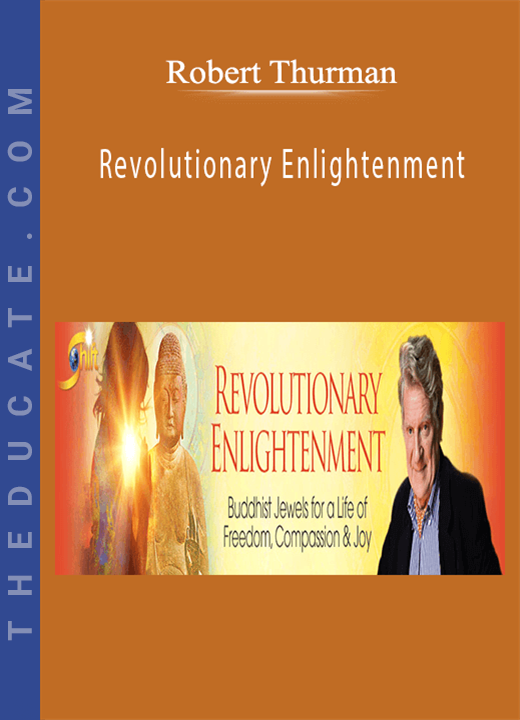


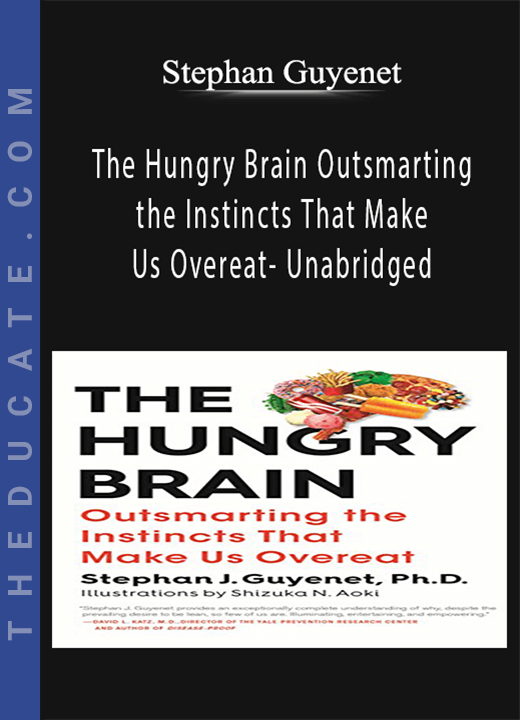
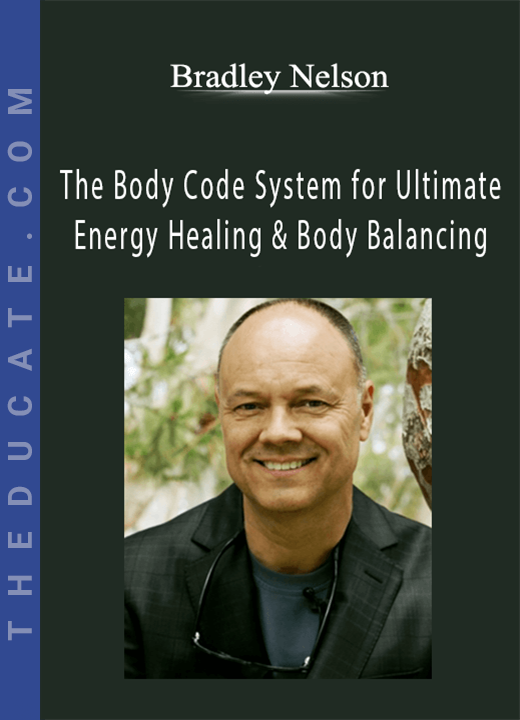
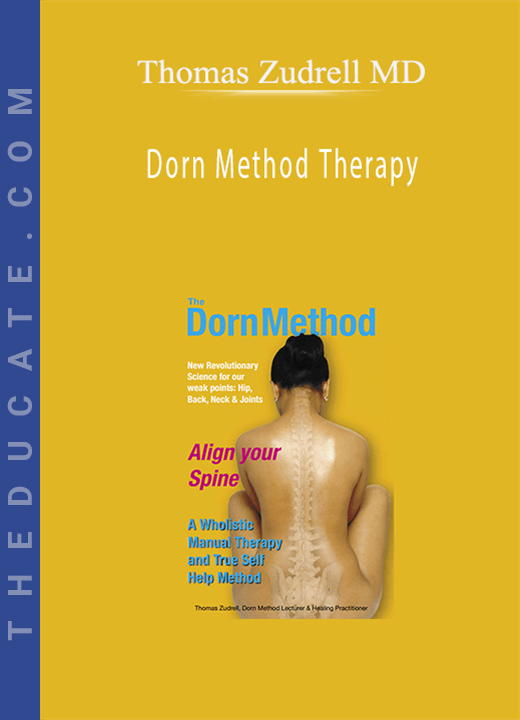
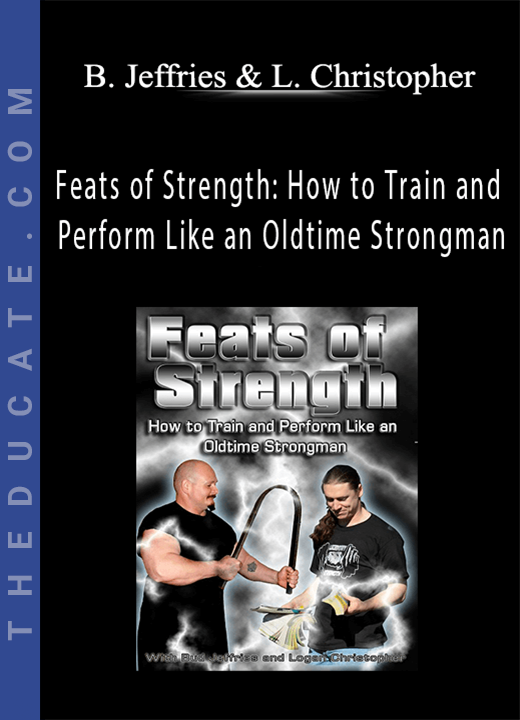
11 reviews for Robert Thurman – Revolutionary Enlightenment
There are no reviews yet.